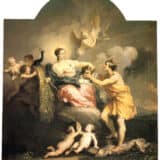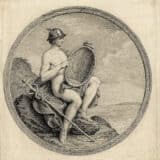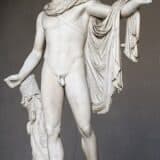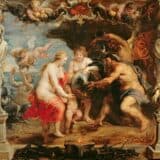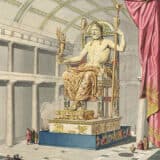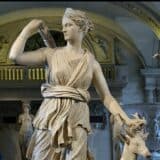The 12 Olympian Gods and Goddesses of Ancient Greece
Do you know all of them by heart?
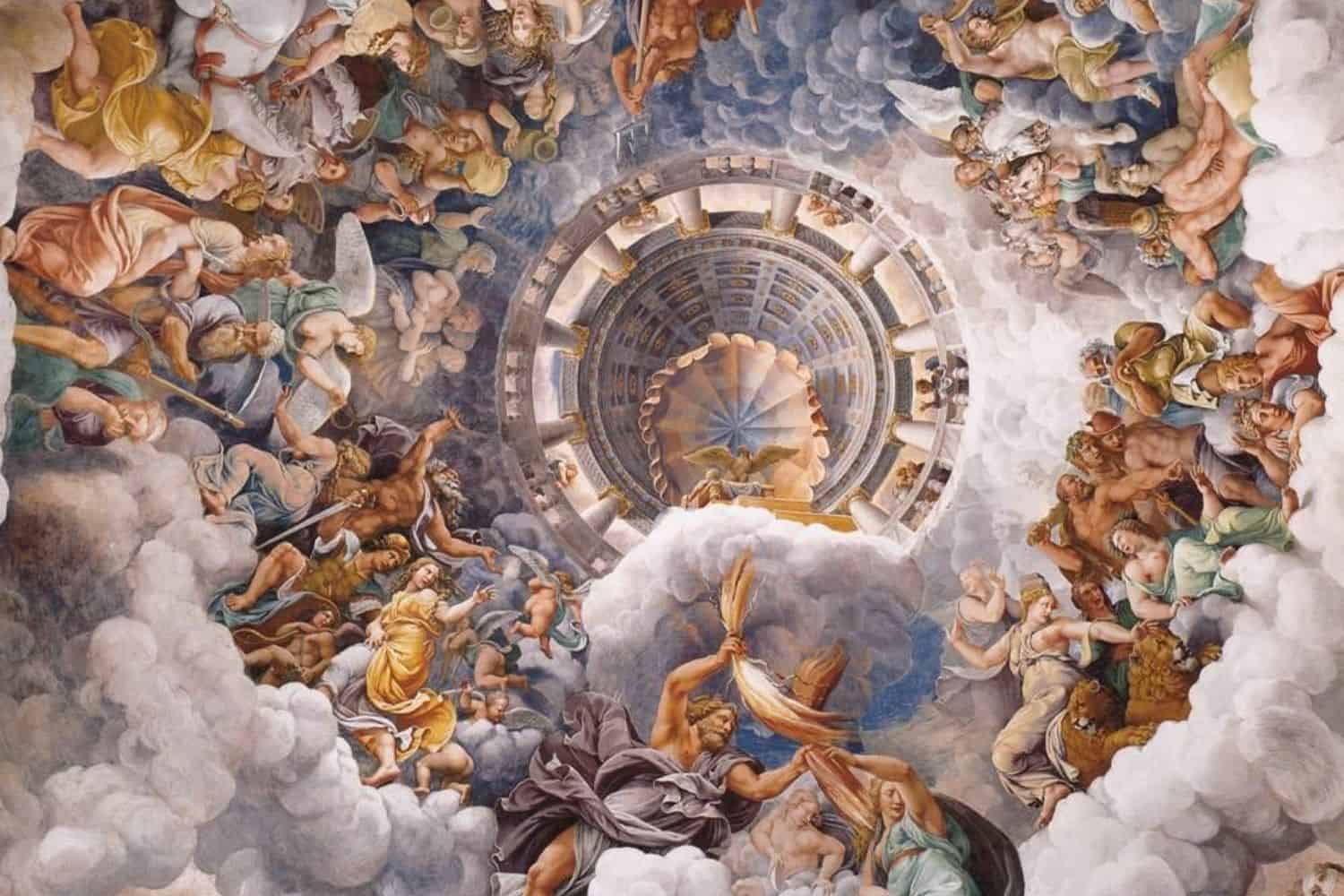
As an Amazon Associate we earn from qualifying purchases. This post may contain affiliate links from Amazon and other sites that we collect a share of sales from. You may learn more here.
For thousands of years, Greek mythology and the Ancient Greek Gods have inspired and awed us. Especially those who lived on Mount Olympus. Known as the Olympians, these Twelve Greek Gods and Goddesses are some of the most well-known gods in history.
Artists have crafted countless statues of the gods and writers have recorded their stories and myths in literary works stretching at least as far back as the epic poems of Homer and Virgil. The Ancient Greeks worshiped the Theoi Olympioi and modern Hellenists and those who feel a particular connection to the deities still worship them today.
These gods ruled over the different aspects of human life and made decisions about humans and events befalling humanity from top of Mount Olympus.
Who Were the Olympians Gods?
Different sources list different deities as part of the 12 Olympian Gods.
The list commonly includes the children of the Titans Cronus and Rhea (Zeus, Demeter, Hera, and Poseidon) and the offspring of Zeus (Aphrodite, Apollo, Ares, Artemis, Athena, Hephaestus, and Hermes). Depending on the source, it includes Dionysus or Hestia because according to some myths, Hestia gave up her seat on Mount Olympus for Dionysus.
Because Hades resides in the underworld, he is rarely included, while Poseidon has a home on Mount Olympus and within the sea.
The 12 Olympian Gods and Goddesses
1. Zeus
Zeus is the King of the gods and ruler of Mount Olympus, the sky, and all of the gods. He is also the god of weather, law, justice, and fate. When displeased he would hurl his mighty thunderbolt weapon.
He is married to Hera, but had many affairs and fathered gods, demi-gods, and mortals with other women.
Roman counterpart: Jupiter

2. Aphrodite
Aphrodite is the Greek goddess of love, beauty, procreation, and desire. Some myths say she is the daughter of Zeus, while others say she was born from sea foam. She was the most beautiful of all of the gods.
Though married to Hephaestus, she had affairs and children with other gods and mortals, including Ares with whom she had Eros.
Roman counterpart: Venus

3. Apollo
Apollo is the god of music, prophecy, healing, and the Sun. His Oracle at Delphi was famous in Ancient Greece as a travel destination if you wanted to see into the future. Apollo was born on Delos with his twin sister Artemis and carries a golden lyre or his archery bow. (Like his sister, he had a penchant for the sport.)
Some myths have him driving a four horse chariot across the sky every morning and pulling the Sun behind him, though others attribute this to Helios.
Roman counterpart: Apollo
4. Ares
Ares is the god of war and violence. He was the son of Zeus and Hera, and the lover of Aphrodite. With her, he fathered their son, Eros. He often wears a warrior’s helm and is known for his quick temper and aggressive nature. It’s believed that he did not have many followers, except in Sparta.
Roman counterpart: Mars
5. Artemis
Artemis is the virgin goddess of the hunt, wildlife, childbirth, and young women. She is sometimes associated with the moon and hunts with silver arrows. Her parents are Zeus and Leto and her twin brother is Apollo.
Roman counterpart: Diana

6. Athena
Athena is the goddess of war, crafts, and wisdom. Unlike Ares who rules over the ugliest parts of war, she oversees strategy and defense. The brave goddess wears a warrior’s helm and is sometimes accompanied by her owl. She is one of the three virgin goddesses of Mount Olympus (the other two are Artemis and Hestia).
She is the daughter of Zeus and his first wife, Metis. When Zeus received a prophecy that he would have a son that would rule over him, he swallowed Metis. However, she survived, and while within Zeus, fashioned armor for Athena.
When Athena was ready to be born, Zeus began to experience intense headaches and to help him, Hephaestus split Zeus’s head open. She then emerged from his head as an adult, fully dressed in the armor.
Roman counterpart: Minerva
7. Demeter
Demeter is the goddess of agriculture and grain. She is the daughter of Titans Cronos and Rhea. Demeter has one daughter, Persephone, and when Persephone was abducted by Hades and taken to the underworld, her despair caused the world to fall into famine.
Eventually Persephone (Kore) returned, and the world sprung back to life. During the months that Persephone must return to the underworld each year, Demeter falls back into grief, which is why we have winter.
The Eleusinian Mysteries — one of the mystery cults of Ancient Greece — held secret initiations every year to honor Persephone’s descent, Demeter’s search, and Perspehone’s ascent and reunion with her mother.
Roman counterpart: Ceres

8. Hephaestus
Hephaestus is the god of blacksmithing, metalworking, and fire. He is said to be unattractive and because of this, Hera threw him off the mountain. He returned, permanently disabled, to Mount Olympus and built his workshop. He crafted the weapons, armor, and furniture for other gods.
Roman counterpart: Vulcan

9. Hera
Hera is the goddess of marriage, women, and childbirth. She is Queen of the Gods and is married to Zeus. Hera is known for her vengeful nature, usually in response to one of her husband’s affairs.
Roman counterpart: Juno

10. Hermes
Hermes is the messenger of the gods and the god of magic, and the patron god of travelers, merchants, and thieves. Hermes wears a winged helmet, winged sandals, and carries a caduceus. He is the son of Zeus and Maia and one of his sons is Pan.
Hermes is also associated with Hermes Trismegistus, the Hellenic combination of Hermes and the Egyptian God Thoth, the god of astronomy, magic, writing, and medicine.
From Hermes Trismegistus, comes the philosophy known as Hermeticism, the Hermetic Order of the Golden Dawn (who created the Rider-Waite tarot deck), alchemy, and phrases such as “as above so below.”
Roman counterpart: Mercury
11. Poseidon
Poseidon is the god of the sea, all other waters, earthquakes, and horses. He is the brother of Zeus and son of Cronos and Rhea. He wields a trident and rides a chariot pulled by two half-horse half-fish creatures known as Hippocamp. Poseidon is married to Amphitrite. Their son is Triton.
Roman counterpart: Neptune
12. Dionysus
Dionysus is the god of wine, ritual madness, and hedonism. In some myths, he is the son of Zeus and the mortal Semele, and was born from Zeus’s thigh after his mother perished upon seeing Zeus in his true form.
While in other stories, he is the son of Zeus and Perspephone or a underworld aspect of Zeus. Dionysus is often found drinking wine, surrounded by satyrs and nymphs and wearing a ivy wreath. His wife is Ariadne.
Roman counterpart: Bacchus or Liber

13. Hestia
Hestia is the goddess of the hearth (the eternal flame) and the home. She is the oldest of the Olympians and the daughter of Cronus and Rhea. In some myths, she gave up her throne on Mount Olympus for Dionysus.
Roman counterpart: Vesta




